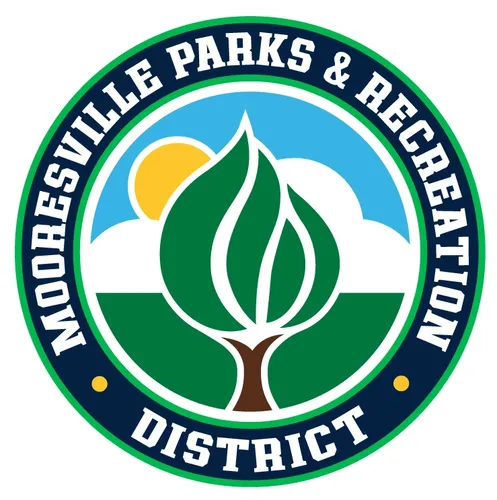Police commission discusses officer survey
MOORESVILLE
The Mooresville Metropolitan Police Department (MMPD) Police Commission discussed the creation of an officer retention plan at Thursday night’s meeting of the commission.
Mooresville Police Commissioner Danny Lundy gave a presentation to the other members of the commission, Mooresville Metropolitan Police Department Chief Richard Allen and Mooresville Town Council President Tom Warthen, proposing the creation of a data-driven officer retention plan.
According to Lundy, in the last five years, the department has lost 10 officers, the equivalent to 45 percent of the police force. Lundy noted that two of those officers have retired and serve as reserve officers, but he said that taking them out of the equation, the loss of officers was 36 percent of the police force, representing 72.5 years of experience with MMPD lost.
“That’s a lot of institutional knowledge that we’ve lost,” said Lundy.
According to Lundy, of the 22 positions on the force, 18 were filled, resulting in an 18-percent shortfall of full employment.
Lundy said that because there were a variety of issues for the officer shortage, there was no silver bullet that would fix turnover for the department and said that it would take time and commitment to fix officer turnover.
“I think we’ve got a good team all around — we just need to get them to fire on all cylinders,” said Lundy.
Lundy said that in order to address officer turnover, the commission would need to devise a comprehensive officer retention plan and suggested the use of surveys to help guide it. He said that he wanted the police commission to take ownership of the surveys in order to ensure their integrity, anonymity and consistency.
According to Lundy’s plan, officers would take three surveys in the first year. The initial survey would help tell the commission where it should prioritize efforts. The second survey would be to solicit feedback on solutions, while the third survey taken further down the line would measure the effectiveness of any solutions implemented.
Lundy presented a 40-question officer satisfaction survey that was divided into 14 categories and emphasized that the survey would be 100-percent anonymous.
He said that some potential solutions to the officer turnover could include incentive pay, an HR component, mental health services, shows of appreciation and training — in communication and leadership in particular.
Lundy said that whatever solutions the commission came up with should be run by the officers first and that the results from the solutions survey would serve as a basis for an officer retention package to be presented to the town council. According to Lundy, the company he worked for had used a similar process to a few year to help solve turnover issues akin to those faced by the department.
“I’ve seen this work firsthand,” Lundy said. “That’s why I’m proposing it.”
Warthen said that he liked Lundy’s presentation, but said that the town had to consider how it would pay for solutions like incentive pay, because throwing money at the problem might not fix it. Warthen also noted that turnover is happening across the town’s departments for a multitude of reasons.
“We’ve seen this turnover in a lot of our departments,” said Warthen.
According to Allen, turnover was also an issue for police departments across the state. Allen said that he was recently at a chief’s meeting with other police chiefs where turnover was discussed as a widespread problem.
“I don’t think this is specifically with us and our agency,” said Allen. “This is everywhere.”
Former Mooresville Police officer Ron Cooper said that one problem is that younger officers were focused strictly on take-home pay, despite the excellent benefits package offered by the department. As a result, Cooper said, many officers were leaving for higher pay, even if there benefits were worse.
Cooper also said that he was skeptical on how effective the surveys would be because he believed that many officers would fail to honestly answer — instead using it as an opportunity to gripe against management.
“They’re gonna slam the police department,” said Cooper.
Police Commission attorney Charles Braun, shared some of Cooper’s survey concerns, cautioning the use of surveys. Braun said that he had been working with police departments for over 40 years and that it was not a normal practice for employees to be surveyed as suggested.
“I have to caution you folks as you consider this in terms of your use of surveys,” said Braun.
Braun said that due to the difficult and often times dark nature of the job, he commonly heard from law enforcement officers everywhere that “morale has never been worse.” According to Braun, as a result, survey answers might not serve as accurate reflections for the commission.
Braun also said that one of the problems with surveys is that you could get employees ganging up on management, in addition to inaccurate answers. Braun also noted that the process could end up frustrating employees if common survey suggestions weren’t met due to fiscal or managerial constraints.
Following additional discussion, Settle made a motion for the commission to have an executive session to work out the details of the survey and officer retention plan.
The motion passed unanimously.
Warthen said that he believed that the commission was moving things in the right direction with its discussion and planned executive session.
“The biggest asset the town has is the employees, and we’ll do anything we can to protect them,” said Warthen.
Monthly stats
Allen presented department statistics for the month of March to the commission.
Allen reported 246 incident reports, 53 arrest reports, 132 citations, 266 warnings and 2,314 computer-aided dispatch calls.
Allen also said that in March, there were 32 accident reports, 17 instances of property damage, three personal injuries, two hit-and-runs and no fatalities.
According to Allen, there were 418 total 911 calls for March. Allen also stated that the department had reported 24 hours of comp time, 56.5 hours of overtime and 20,693 miles for mileage.
In other business
• Allen presented updates about the town’s new police station to the commission. Allen informed the commission that AT&T was in the midst of installing it’s 911 system and said that other contractors were close to finishing their work. He said that he believed the department would be moved into the new building by June.
• Allen also informed the commission that the three applicants who had recently been offered conditional employment officers had gone to complete their psychological and physical evaluations and said he would inform them when those were returned to him.
• Allen also told the commission that he had gone to the town council for permission to fill a fourth vacancy that had opened up in the department.
Allen informed the commission that the department had received lateral transfer applicants — individuals who had already graduated from the Indiana Law Enforcement Academy — and asked for permission to expedite the lateral transfer process.
Lundy made a motion to grant Allen permission to move forward expediting the lateral transfer process. The motion passed unanimously.
• Lundy made a motion to approve the minutes from the previous meeting. The motion passed unanimously.
The next meeting of the Mooresville Police Commission will be 6 p.m. May 16 at the Mooresville Police Department, 104 W. Main St.
~ By Anthony Woodside | Reporter | Published July 25, 2019 in The Mooresville Times



Comments
No Comments